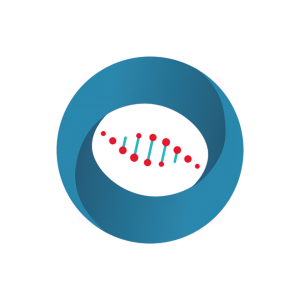Qualigen Therapeutics Announces Poster Featuring Positive Early Clinical Experience with QN-302, a Novel First-in-Class G-Quadruplex Experimental Anti-Cancer Drug, at the American Association of Cancer Research (AACR) 2024 Annual Meeting
CARLSBAD, Calif., April 09, 2024 (GLOBE NEWSWIRE) -- Qualigen Therapeutics, Inc. (“Qualigen” or the “Company,” Nasdaq: QLGN) today announces that a poster featuring its early clinical experience with a novel first-in-class G-Quadruplex experimental anti-cancer drug, QN-302, was presented at the American Association for Cancer Research (AACR) Annual Meeting 2024 held April 5 – 10 in San Diego, California.
“These early clinical data from this multi-center Phase 1 study in patients with metastatic pancreatic cancer are encouraging and further corroborate our approach for utilizing QN-302 as a potential treatment for advanced pancreatic cancer,” commented Michael Poirier, Qualigen’s Chairman and Chief Executive Officer. “The three pancreatic cancer patients in the trial to date had ultimately failed extensive prior therapy including Standard of Care and subsequently received the lowest dose of QN-302, with no Dose Limiting Toxicity (DLTs) or Significant Adverse Events (SAEs) observed, leading to reportedly “good” quality of life during the dosage period. In addition, two patients showed no disease progression over months of treatment.”
The Annual AACR Conference is a focal point of the cancer research community, where scientists, clinicians, other health care professionals, survivors, patients, and advocates gather to share the latest advances in cancer science and medicine.
Highlights from this QN-302 Poster
Abstract #105 - “Early clinical experience with a novel first-in-class G-quadruplex experimental anti-cancer drug” Tariq Arshad, Stephen Neidle, Sreenivasa Chandana, Erkut Borazanci and Nehal Lakhani - Results demonstrated that for the first five patients (three of whom were PDAC patients), QN-302 is overall well-tolerated (no SAE) and they have reported a “good” quality of life during the dosage period, with some early indications of stable PDAC disease. All PDAC patients had ultimately failed extensive prior therapy. Dose escalation initiated (patient #101-004) after three patients successfully completed cycle 1 of the initial dose. Dose escalation will be continued, with more patients being enrolled in the coming months. One patient was withdrawn from study 3/1/2024 after 4 months of stable disease. One patient was withdrawn from study on 3/12/24, after 3 weeks and a third patient is still in the study as of 3/13/24, 3 months after dosing start.
In addition, Qualigen presented three other posters on QN-302 at AACR, as follows:
Abstract #5928 - “Structure-activity relationships for the pan-quadruplex experimental drug QN-302 and two analogs probed with comparative transcriptome profiling and molecular modeling” Ahmed Ahmed, Shozeb Haider, Tariq Arshad, and Stephen Neidle
Abstract #3350- “The pan-quadruplex drug QN-302 targets up-regulated genes in pancreatic cancer and in other cancer types which correlate with poor prognosis” Stephen Neidle, Ahmed Abdullah Ahmed and Tariq Arshad
Abstract #576 - “The pan-quadruplex drug QN-302 selectively down-regulates key pathway targets in pancreatic cancer cells that are up-regulated in human pancreatic cancer” Stephen Neidle, Ahmed Abdullah Ahmed and Tariq Arshad
About QN-302
QN-302, a novel tetra-substituted naphthalene diimide derivative invented and initially developed at University College London, is a potent binder to quadruplex (G4) sequences in the promoters of cancer genes, with 1-2 nM anti-proliferative activity in human pancreatic cancer (PDAC) cell lines. QN-302 has significant anti-tumor activity in xenograft, orthotopic and genetic (KPC) models of PDAC and retains high activity in gemcitabine-resistant PDAC cell lines. The drug is bio-available and well tolerated at therapeutic doses in the various animal models.
QN-302 is being developed by Qualigen Therapeutics Inc. It was granted Orphan Drug status for Pancreatic Ductal Adenocarcinoma (PDAC) by the FDA in January 2023 and granted Investigational New Drug (IND) clearance in August 2023 by the FDA for phase 1 clinical trial in advanced or metastatic solid tumors. This trial is being conducted at two cancer centers in the USA. In this first-in-human Phase 1 dose-finding study, the study design is for QN-302 to be given once a week, intravenously over 60 min, on Day 1, Day 8, and Day 15 of a 28-Day cycle. The study is designed to use a standard oncology 3+3 dose escalation design, with enrollment of 3 patients per cohort and expansion to 6 patients in the event of a DLT (Dose Limiting Toxicity). Five patients have been enrolled to date in the trial, two with colorectal adenocarcinoma as their primary cancer. Both were subsequently withdrawn from the trial, due to non-QN-302 issues (Grade 2 anemia: disease progression). One completed one cycle of QN-302 with no serious adverse effects (SAE).
About Qualigen Therapeutics, Inc.
Qualigen Therapeutics, Inc. is an early-clinical-stage biotechnology company. Until the sale of its diagnostic business in 2023, Qualigen had a 20+ year history developing, marketing and selling medical devices in the United States and internationally. Our investigational QN-302 compound is a small molecule selective transcription inhibitor with strong binding affinity to G4s prevalent in cancer cells; such binding could, by stabilizing the G4s against “unwinding,” help inhibit cancer cell proliferation. QN-302 is currently in a Phase 1a clinical trial. The preclinical compounds within Qualigen’s family of Pan-RAS oncogene protein-protein interaction inhibitor small molecules are believed to inhibit or block the binding of mutated RAS genes’ proteins to their effector proteins, thereby leaving the proteins from the mutated RAS unable to cause further harm. In theory, such mechanism of action may be effective in the treatment of about one quarter of all cancers, including certain forms of pancreatic, colorectal, and lung cancers.
For more information about Qualigen Therapeutics, Inc., please visit www.qlgntx.com
Contact:
Michael Poirier
Qualigen Therapeutics, Inc.
760.452.8111
mpoirier@qlgntx.com
Source: Qualigen Therapeutics, Inc.










